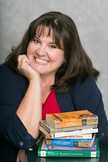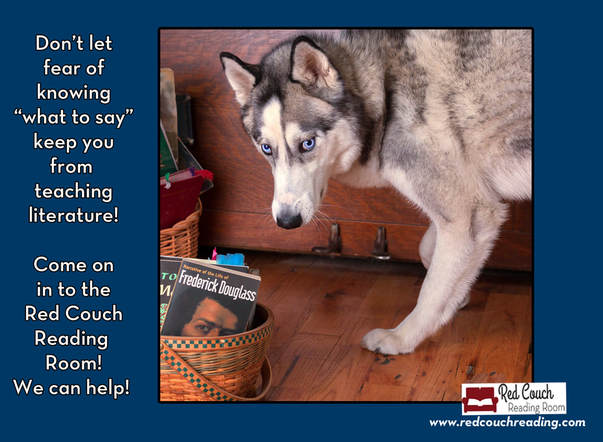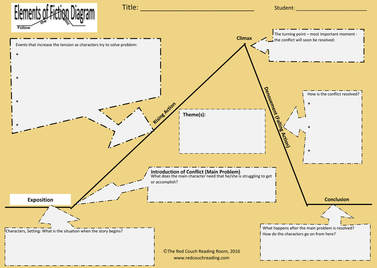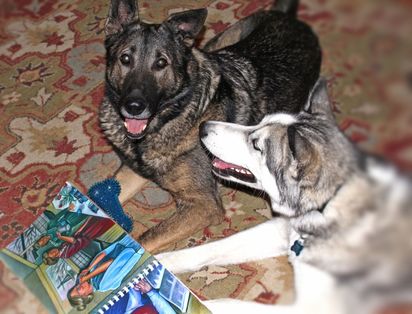From talking with literally thousands of homeschool moms, I think the problem can be divided into two equal parts, which often overlap. First, suddenly at 9th grade we encounter the realization that high school involves stepping-up our game. Of course, our children are getting a great education. But, suddenly it seems so critical! It's critical that they fill in all the "blanks" of education they need before graduating. It's critical that we be able to document what they've learned, for college entrance purposes. It's critical that we well-use this, our last chance to cram into their sweet little heads anything we think needs cramming!
The second hurdle to teaching lit seems to be that many of us just don't feel "able" to teach literature. We "didn't get it" when we were in high school. We don't know where to start. How can we teach something we haven't really mastered ourselves?
Let's tackle the first part first! Home educating your high school students has the potential to be the very most precious time in home education. They are old enough to think deeply, converse articulately, form their own opinions...and defend them. I beg you, don't pass that up! Realize that no matter what school a student graduates from, there are gaps. In 17 years (K-college) of public school, during which I took all the advanced level classes that were available at the time, I never - EVER - had a single grammar lesson, and, remember, I am an English major! I first learned grammar as I taught my little daughter - our first child. I'll never forget the day I discovered the difference between an adjective and an adverb. She was in third grade. I was 32. Before I started homeschooling my children, I was the assistant controller and junior officer at a major financial institution. Trust me, everyone has a few gaps. It doesn't hold us back. Plan to cover well all you can, but don't allow this to become a fear.
Next - do we need to document? Of course. That's another topic, but that isn't difficult. There are free forms all over the internet, excel-file transcript forms, course of study documents. I'll be writing a short article on high school documentation in the next few weeks. Stay tuned, it's easy.
So, that brings us to the "how" of this whole thing. First, shake off the doubts. Literature isn't something that comes with a prepackaged list of facts you must tackle. It's a conversation; it's a journey. You will develop the mental muscles to dig more deeply as you begin to dig at all!
Start with a great list of books. If you don't already have a list of classic books, short stories, poems, and essays; start here for an great Intro to Lit list, start here for a great American Lit list, and stay-tuned for my British Literature course (debuting later in 2018) scope and sequence guides. Click on the page, scroll down to the free, downloadable PDFs. Don't worry! You don't have to use my courses to check out what we study! :D (Although, I would love for you to check out our courses!)
As you read these books with your student, remember that literature discussion is really about the characters in the books. The characters have worldviews, they encounter and deal with situations, they overcome odds - or are overcome by them. Don't shy away from books that deal with difficult subjects, rather, embrace them as a chance to discuss your beliefs and help your student understand the different sides of the issue. It still shocks me that public schools have students read "To Kill A Mockingbird" in the 7th grade in many places. I just don't think middle school students are ready for that book, with its deep themes and adult topics. Yet, it is an important book. Wouldn't YOU rather read and discuss it with them, say in the 10th-12th grade, leading their questioning and directing their hearts? Aren't these the critical discussions we want to have with our kids as home educators? Isn't this why we choose to homeschool in the first place?
As you read, try to figure out together - what is the big idea the author wants us to take away from this book - the theme he or she is addressing? Remember, we don't have to agree with the author's ideas. In fact, sometimes a book is an intimate and moving introduction to what it feels like to have another world view. I disagree with Stephen Crane's naturalistic vision of the world. Yet, when I read "The Open Boat," or The Red Badge of Courage, I am not offended by his view. It helps me understand people who hold that view - and perhaps to appreciate my own even more.
If you do just these things - these few baby steps - you will help your students learn to love literature. You will help them learn to read carefully and analytically. You will help them become critical thinkers. You can do this! I had three science-minded students - each of whom has now gone on to engineering and science majors in college - yet even my math/science minded kids loved the idea of taking a work apart and studying it, of dissecting it for cause and effect, of considering what the author is prodding us to think about.
Of course, if you want more help - Please, feel free to check out my online literature courses! They include grammar review, vocabulary units, in-class worksheets, writing prompts and assignments, and a step-by-step teacher guide with all the answer keys to study questions and some discussion questions to help you interact with your student over the BIG IDEAS - the Great Conversation - of literature!
Not all rigor is mortis!





 RSS Feed
RSS Feed
